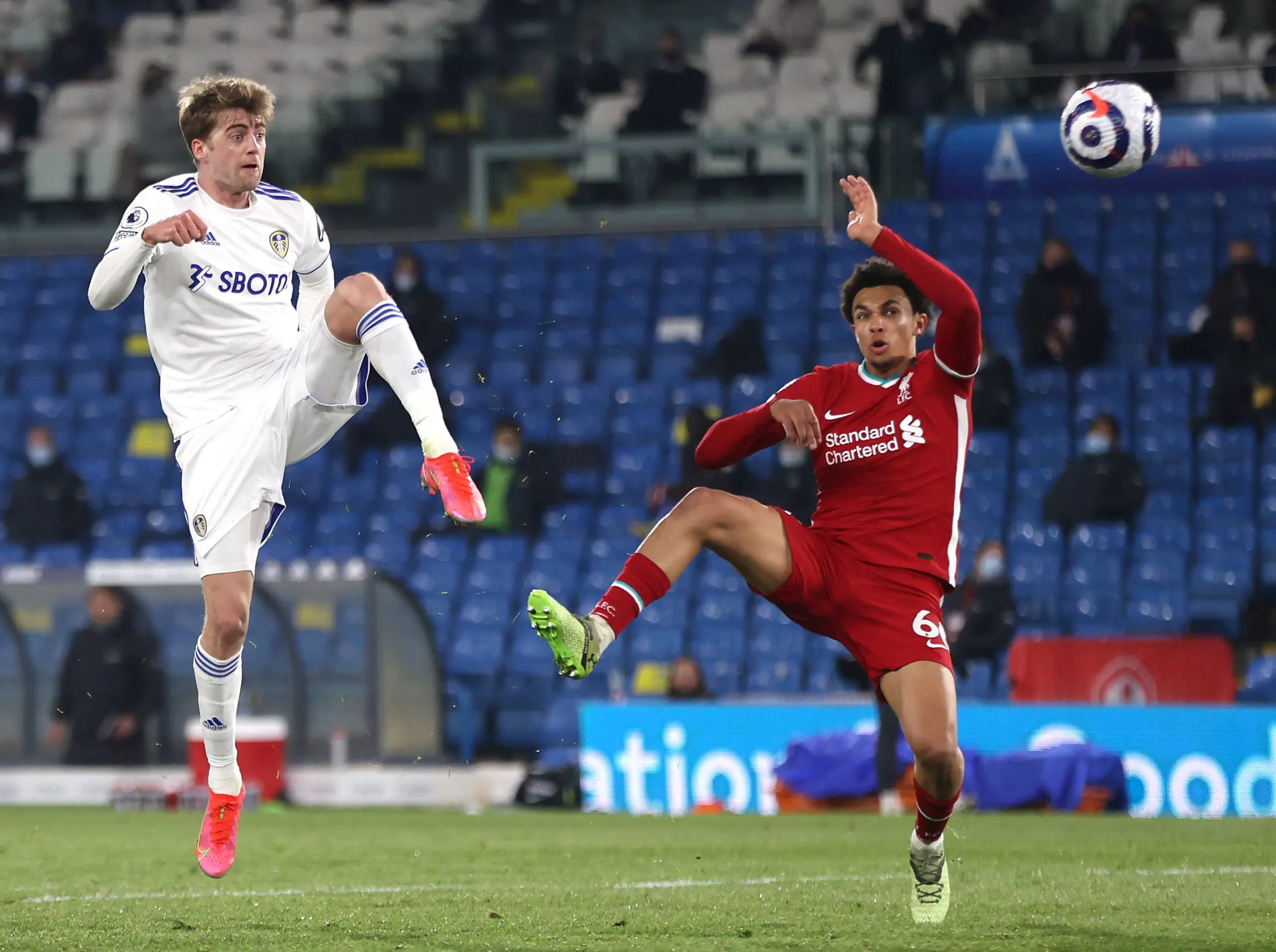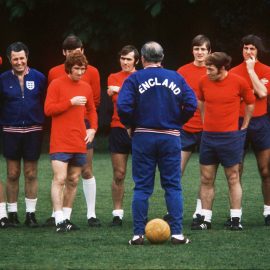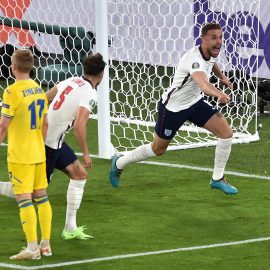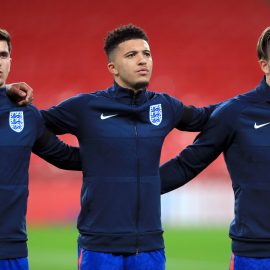As the England players trudged off the Cape Town pitch to a chorus of boos on Friday evening, the post mortem has been long and frenetic. Such introspection usually follows a bad England performance and with the team having produced arguably their most feeble game since the Euro 2008 qualifying defeat in Zagreb the ire of those who wish England success in South Africa has been spread widely. Mike Martin examines the many parties conspiring against English success at the 2010 FIFA World Cup.
The Players
Any study of England’s results in recent World Cups will reveal an alarming fact. Since the heartbreak of Turin in the Italia ’90 semi final, England have won just seven of their last eighteen World Cup matches. During that period they have scored three goals on just one occasion: a 3-0 win in the second round in 2002, though that was as much to do with Danish defensive incompetence as anything else.
The goals always seem to dry up for England at the World Cup. At the European Championship this is often not a problem, with opposition more prepared to attack. In 2000, Kevin Keegan’s much-lambasted side scored five in three games in a tough group containing Portugal, Germany and Romania, albeit failing to reach the knockout stage. England were joint top scorers at Euro 2004, with Wayne Rooney and Frank Lampard each in scintillating form.
No team scored anywhere near as many goals as England in World Cup qualifying in Europe this time around, and England were in arguably the hardest group, banging in nine against a Croatian side who were a penalty shoot-out success away from reaching the Euro 2008 semi finals.
Put simply, English attacks stutter at the World Cup. Against Algeria, Frank Lampard and Steven Gerrard scuffed first half shots into the grateful arms of Raïs M’Bolhi, hardly a formidable goalkeeper. Long range efforts have been a danger to shipping, though that is hardly a problem unique to England as the world’s finest all struggle to control the ghastly Jabulani ball.
Having failed to relieve the pressure of a World Cup bubble with a win against the USA, England looked petrified of failure against very poor Algerian opposition. Not only that, they did not look fit. Either Wayne Rooney is injured or he is suffering a dip in form so demoralising it is robbing him of the power to run with any urgency. Time and time again, England have proved themselves psychologically incapable of living up to expectations at a World Cup.
Foolish people, or perhaps those being deliberately dense to make a point, will tell you that England’s players are over-rated and are made to look better than they are by superior foreign players in the Premier League. Yet how many underperforming Chelsea midfielders were carried by Frank Lampard as Chelsea won the double last season? Wayne Rooney’s season put Dimitar Berbatov to shame while Ashley Cole would walk into Spain, Brazil or Argentina’s first team.
England, even by an uncharitable standard, have seven world class players: Rooney, Lampard, Gerrard, the two Coles, John Terry and Rio Ferdinand. Italy have one, Daniele De Rossi, and there are many ordinary players in an Argentine team who look the best in the tournament by a distance. The white national shirt weighs far heavier on them than their club kits.
The Coach
Many, if not most, of the changes effected by Fabio Capello are not remotely risible. It is about time somebody ended the silly culture of nicknames used as official terms of reference – ‘Stevie G’, I ask you – and it is the least the players can do to look smart when in official transit.
Capello, though, has no experience of managing at an international tournament. He was a player for Italy in 1974, when the squad was so tainted by schisms – north and south, first team and reserves, veterans and younger players – Italy had a disastrous tournament and a 2-1 defeat to Poland in their final group fixture in Stuttgart had them packing their bags.
Yet Capello appears to have learned little from the experience. The squad appear bored, miserable and lacking in confidence in their coach. The FA, as usual, solved a problem by replacing it with the opposite problem. Sven Göran Eriksson and Steve McClaren too sycophantic? No problem: please welcome the coldest and least approachable England manager in years.
We hear of players taking issue with small details: Capello not acknowledging them when passing in a hotel corridor and suchlike. These things matter little during a qualifying campaign, when international spells are short and sharp. But when on the other side of the world for weeks on end, as it is during a World Cup, such irritations fester and can undermine morale.
So too can Capellos numerous other decisions which we may now justifiably term errors. By prevaricating on the selection of a goalkeeper, he drew attention to an uncertain position, making it considered a position carrying more problems than should be necessary considering England have three perfectly sound keepers in the squad, heaping pressure on Robert Green.
Leaving the team announcement to the last minute prevents the side gelling in training, with players constantly on guard as they fear for their place in the side. Picking James Milner, an admirable but clearly unwell midfielder, was misguided while his selection of the serially unfit Ferdinand as captain was asking for trouble. By refusing to introduce Joe Cole, England’s only real playmaker and most creative player by far, those of us less inclined to a diplomatic lexicon are tempted to think he has a screw loose.
How much the senior players can persuade the often stubborn Capello to loosen up and to create an atmosphere more conducive to a happy and engaged squad could be a decisive factor in whether England can rescue their World Cup against Slovenia.
The Media
Ask any Scottish fan why they will be supporting England’s opponents in any World Cup and the topic of the ‘arrogant English media’ is bound to be raised. Yet this is a mirage. Going into the championship in South Africa, there was little in the press save relentless, tedious negativity.
England friendlies can be an exasperating experience. Even when they side do well the players must wonder what they need to do to get a bit of credit from a scowling, curmudgeonly press. In March, England fought back to beat a fine Egypt side 3-1, playing some very good football in the second half. Praise was this on the ground.
In May, Mexico played some neat football, dominating possession by passing the ball sideways among the midfielders and fullbacks. England were unwavering, winning 3-1, and were more ruthless and potent than their talented opponents. The following morning the Times described them as ‘dismal’. What, you may ask, did the Coriello della Sport say of the Italians when Mexico beat them 2-1 the following week?
Glen Johnson scored the finest solo goal the side have yet managed at the new Wembley stadium, yet received only minimal plaudits, the media obsessing with his perceived defensive weakness. (It should be noted that Mexico found little profit attacking through their left wing). You get the impression that most journalists will not praise the side unless they win 5-0, the opposition have not a single attempt on goal and the team finish the match with 69% possession.
If the 2006 World Cup cautioned the media against blind optimism – you remember the ‘Golden Generation’ – then hopefully England’s poor start in 2010 will serve as a warning against groundless, dispiriting pessimism.
The Fans
England have a core of loyal supporters who should be the envy of every other international team in football. Wherever the tournament, England matches feel like home games, even when they play the host nation, such as was the case when facing Portugal in the Euro 2004 quarter final.
But England’s casual fans are a curious bunch. The resentment of the players’ wages is often inimical to rational analysis, while too many observers carry their club prejudices into the international arena. Describing an underperforming international as ‘overpaid’ is usually the first resort of somebody incapable of more sophisticated analysis. When the team play badly, supporters often resort to questioning their desire to win, which is plain daft. Their vocal impatience when the team do not attack directly often leads to players lumping long balls up to Emile Heskey or Peter Crouch, which contributes to England struggling for possession.
The tendency to boo during matches – as opposed to the understandable display of dissatisfaction we saw after the final whistle in Cape Town – undermines player confidence and makes players not want the ball. If England are struggling to create, the last thing they need is players scared to become involved in a move in case they incur the wrath of a British public swamped by a mocking culture incubated by execrable television talent shows and celebrity culture.
England’s best fans deserve to see the side triumph. They spend preposterous amounts of money following the side and put the pitiful followings of other major footballing nations to shame. They have also, in the main, learned to behave themselves in recent years. But when one considers the dysfunctional relationship between domestic fans and the England team, perhaps we have as much success as we deserve as a country.
Add Sportslens to your Google News Feed!






